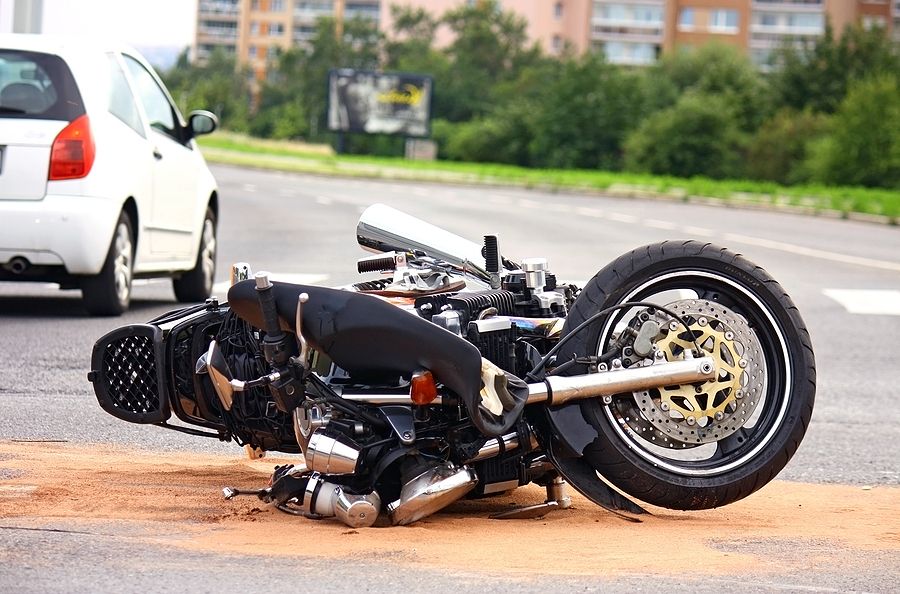What Motorcyclists Should Know About Traumatic Brain Injuries
Motorcycles are
fun to ride. But with that excitement comes inherent danger. Statistically, motorcycles
are more dangerous than any other vehicle to operate. Their two-wheel design
and open structure are less stable, they are harder to see by other drivers on
the road and provide less physical protection from flying objects on the road. As
a result, riders are more likely to suffer significant injuries or death if
they are in an accident while riding. According to the National Highway
Traffic Safety Administration accidents involving motorcycles represent a
disproportionate amount of all traffic accident deaths. Riders are 26 times
more likely to die as a result of their injuries. If riders survive a
motorcycle accident one of the most significant injures a rider can get is a
(traumatic brain injury) or TBI.

1. What is a TBI?
One of the more serious injuries sustained by motorcycle
riders is a TBI or traumatic brain injury. A TBI is a disruption
in the normal function of the brain that usually
results from a violent blow or jolt to the head. As a result, motor vehicle
collisions are a common cause of traumatic brain injuries. Additionally, a
traumatic brain injury can occur when the brain is damaged by a foreign object
like a bullet or shattered piece of skull.
The effects of a TBI can range from a temporary effect on
your brain cells or a more serious impact including bruising, torn tissues,
bleeding and other physical damage that could lead to death. These injuries can
have wide-ranging physical and psychological effects. Some signs or symptoms
may appear immediately after the accident or in some cases, days or weeks
later.
2. What are the types of traumatic brain injuries?
According to the Johns
Hopkins School of Medicine TBIs are either closed brain injuries or penetrating brain injuries. Closed brain injuries occur when there is an injury to
the head put the skull is not penetrated. These injuries are caused by rapid
forward or backward movement or shaking of the brain inside the skull. This
shaking causes bruising and tearing of the brain tissue and blood vessels. These
types of TBIs are usually caused by vehicle accidents, falls, and even athletic
activities.
A penetrating traumatic brain injury is just like it sounds. It is caused when an injury to the head causes an open wound and
there is a break in the skull. This break in the skull then causes physical
damage or a piercing or tearing of the brain tissue.
3. What are the symptoms of traumatic brain injuries?
The symptoms of a TBI are varied and in most cases related to the
severity of the injury to the brain tissue itself. Symptoms can range from a mild headache to sustained
period of unconsciousness.
- A serious headache
- A possible depression in the skull around the site of the impact
- Difficulty focusing or concentrating
- Blurry vision
- Ringing in the ears
- Bruising of the eyes
- Leaking of fluid from the ears
- Blood behind the eardrum
- Motor deficits (poor balance, tremors, paralysis, etc.)
- A potential loss of consciousness
- Increased irritability
- Dizziness
- A rising heart rate or falling blood pressure
- Memory loss
- Loss of sight or hearing loss
If not diagnosed quickly
these symptoms could progress causing more serious life altering effects. If
you are involved in a motorcycle fall or injury your head in some other way,
seek medical attention immediately if any of these symptoms appear.
4. Will insurance help me if I get a TBI?
Choosing
the right insurance is also a critical part riding a motorcycle. While insurance
may not prevent an accident from happening, it will help to reduce some of the
financial and emotional impact if an accident occurs. The proper insurance
policy will cover damages to your motorcycle, other property damage resulting
from the accident, assist with medical bills if you are injured, and financial
assistance for you and your family if you are out of work or don't survive the
accident.
5. How can I prevent a traumatic brain injury?
Accidents
happen and they can't always be avoided. But you can take steps to make reduce
your chances of being involved in a motorcycle accident. The proper training,
licensing and gear are critical to ensuring that you understand the mechanics
of riding, the rules of the road and protect your body. To prevent a traumatic
brain injury the best thing you can do is wear a DOT
approved helmet and make sure that it fits properly.
6. What happens if I am involved in an accident?
Reports
show that motorcycle crashes are on the rise. As with any automobile accident the
consequences for all involved are potentially life altering and devastating. If you are in an accident contact your local motorcycle personal injury lawyer in Atlanta to
get assistance. A professional familiar with the nuances of these complex issues is a great
resource to consult in these situations and can help you determine damages, liability,
and other factors relevant to the resolution of your matter.
